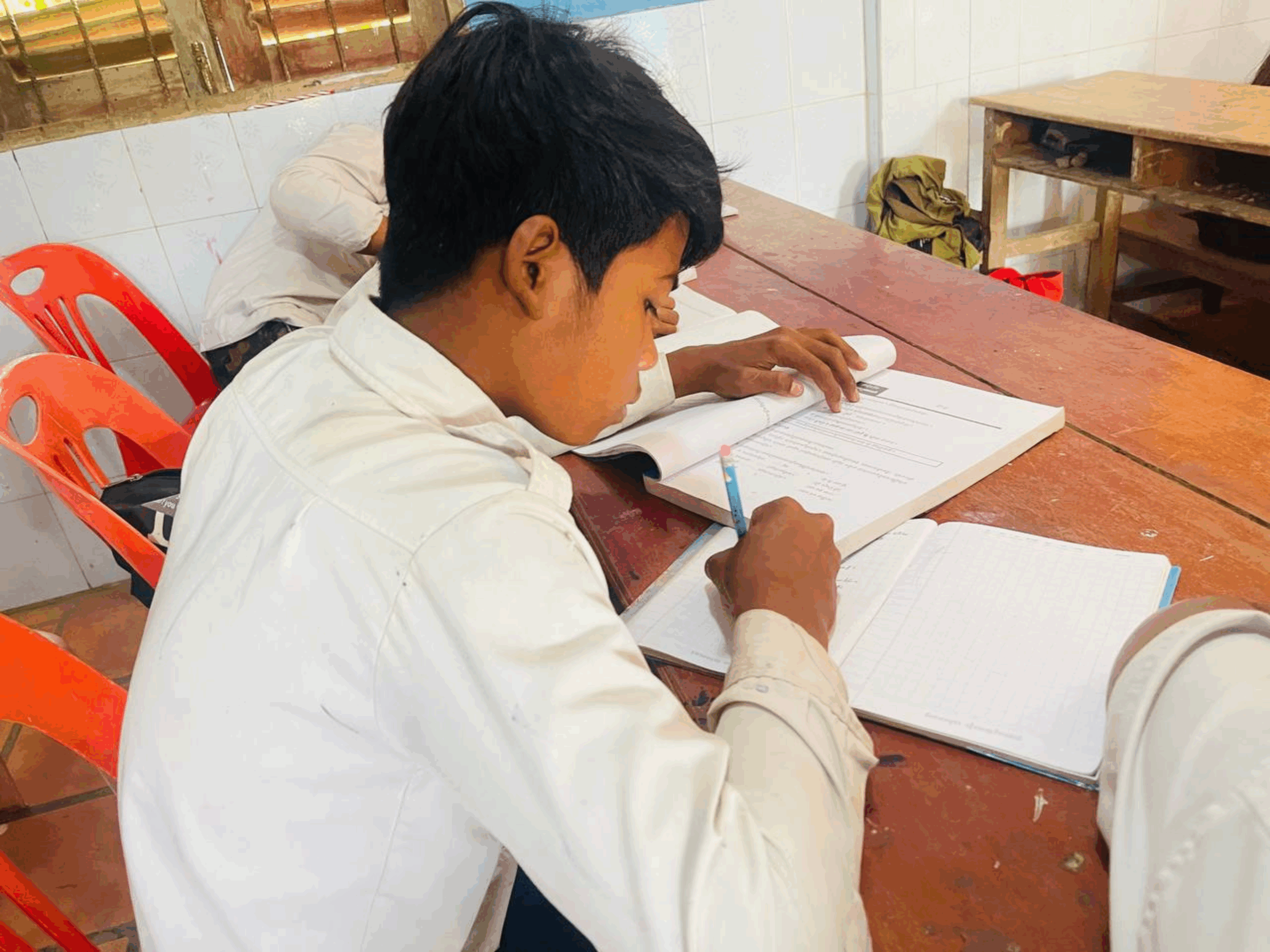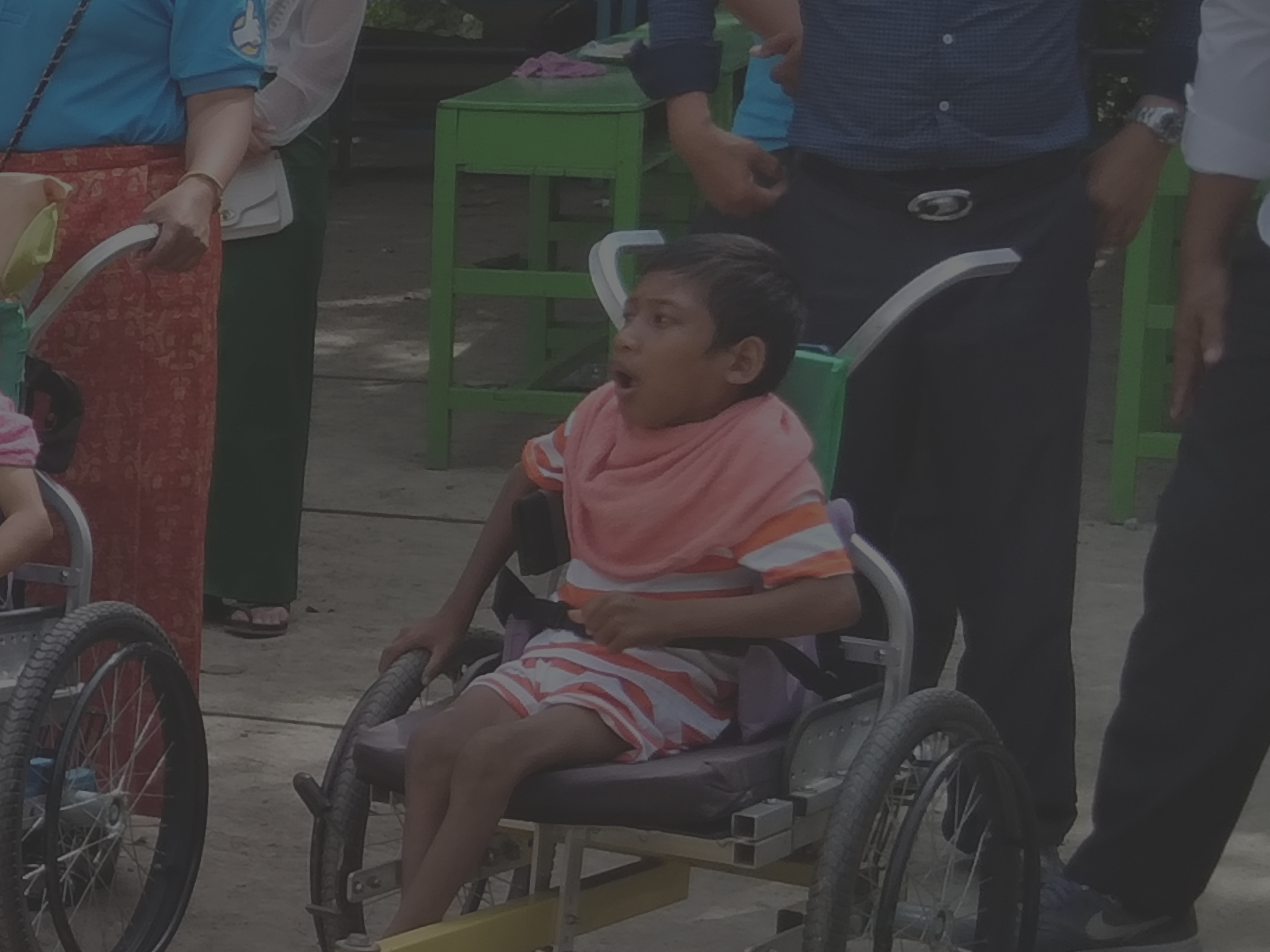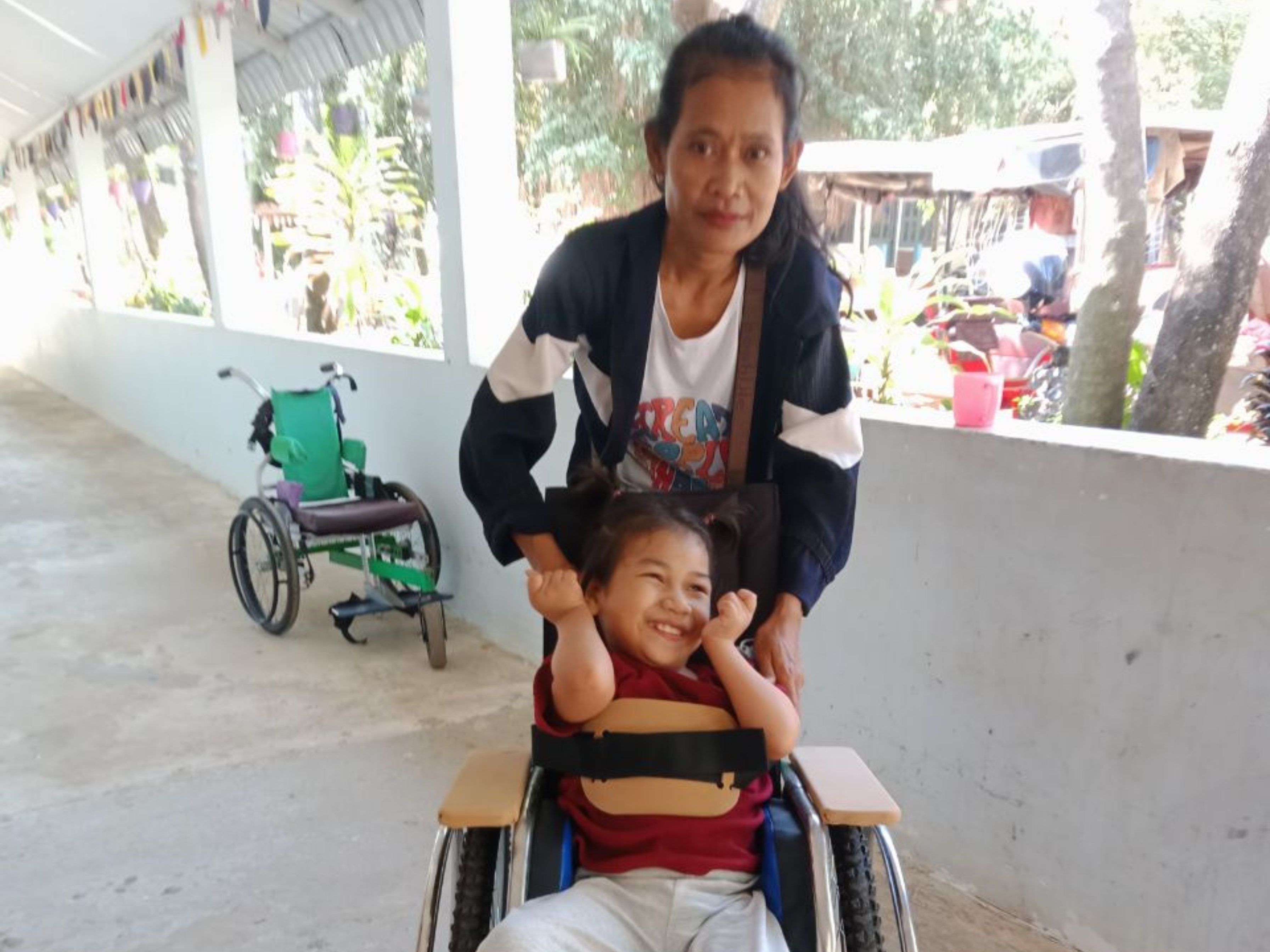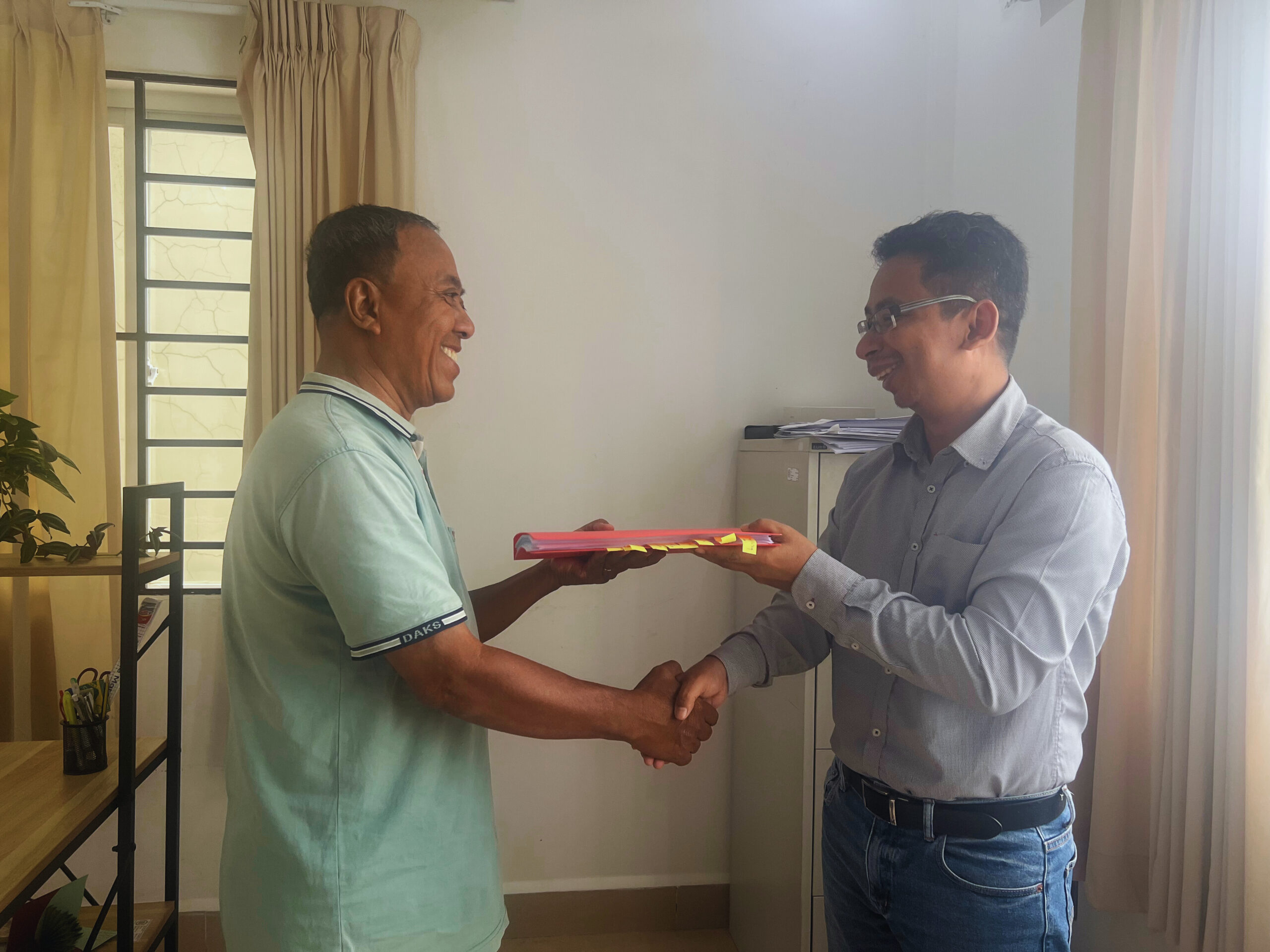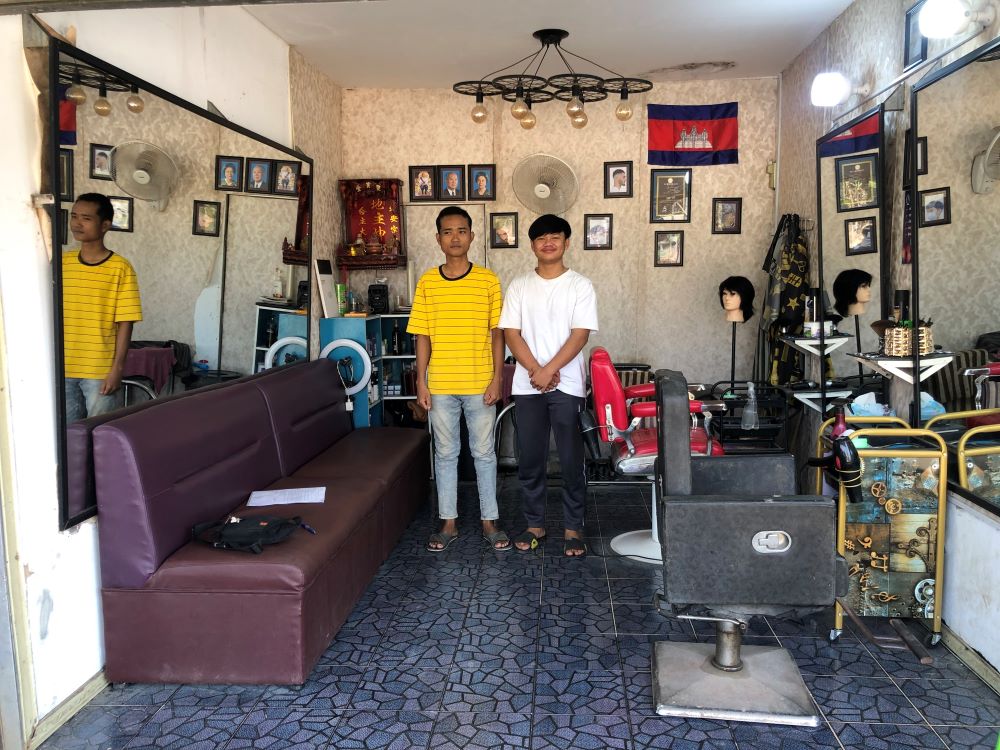Poverty is both a cause and a consequence of disability in Cambodia. Malnourished mothers and children result in cognitive and physical development delays. These conditions are more likely to be left untreated or undiagnosed if the family is impoverished and cannot access proper medical care. As their condition worsens, children with disabilities are excluded from inclusive education, which impairs their ability to gain employment and live independently later in life. Understanding this, Damnok Toek’s disability outreach programme targets the most impoverished and marginalised families in Neak Loeung.
As DT’s tuk-tuk pulls up to a local shop, Try Mao, DT’s Disability Outreach Team Leader, is enthusiastically greeted by the shop owners, an elderly couple. Their granddaughter, a young girl who walks with a leg brace, waits inside the shop where Try Mao sits to begin their usual discussions about the girl’s condition with her and her family.
‘One year ago, she could not sit up, she could not eat,’ her grandmother, Phalla, describes. ‘Now, look! She can walk and wants to do more activities since it is easier for her to move.’
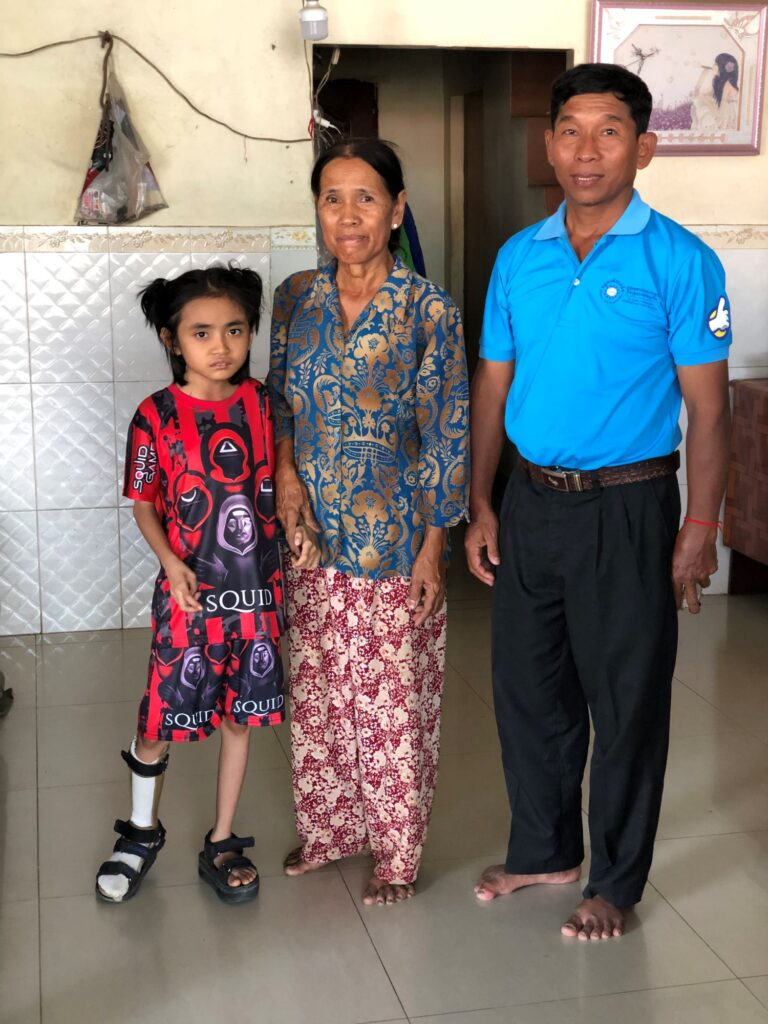
Phalla and her husband are the girl’s primary caregivers, a family dynamic common among poor families in Cambodia, as adults leave their children in the care of grandparents so they can travel for more lucrative job opportunities. However, being the primary caregiver for a child with a disability can be a full-time job, especially in the early stages of rehabilitation.
For elderly caregivers, the additional physical demands of care provision for those with little understanding of disability can be overwhelming. Try Mao has seen all too often children with disabilities being neglected or abandoned by families who feel hopeless to improve their child’s condition. Preventing this is one of the primary goals of DT’s disability outreach.
Phalla describes her journey to understanding her grandchild’s disability and the struggle to find reliable information and assistance for her. ‘Before Damnok Toek came to speak to me, we did not know how to care for her. I did not think anything was possible.’
Often, for children with physical disabilities, simple techniques and accessories can help improve their conditions. Damnok Toek’s outreach team works with families to identify simple and cost-effective solutions to improving mobility around the home and community, information about disability-specific care, and referrals to programmes designed for children with disabilities, including inclusive education opportunities.
Families of children with physical disabilities often see visible and rapid improvements in their children with Outreach support. Increased mobility leads to greater independence, and children with physical disabilities frequently transition easily to public schools, which are becoming more accessible. However, intellectual disability (ID) remains vastly under and misdiagnosed and still carries a heavy social stigma, resulting in fewer families accessing education and resources specific to their child’s condition.
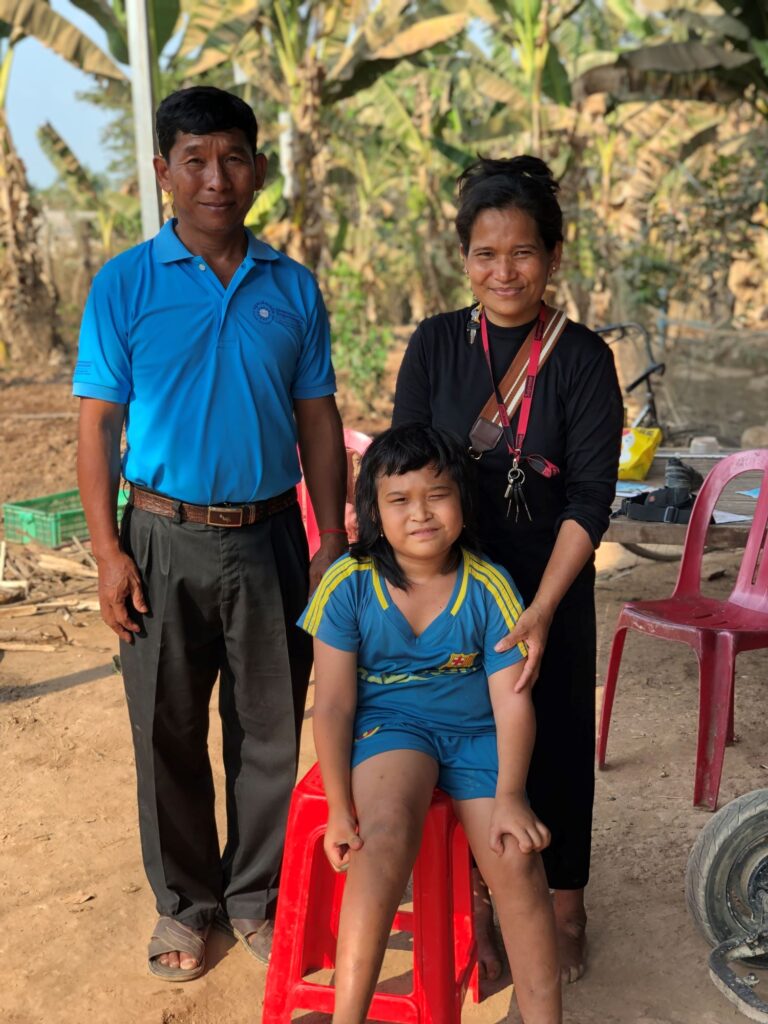
After receiving and using the leg brace from Damnok Toek, Phalla was so pleased with her granddaughter’s improved mobility that she enrolled her in public school, expecting her progress in the classroom to be just as dramatic. However, soon after she began school, Phalla’s granddaughter started displaying symptoms of autism, which likely went undiagnosed due to the severity of her physical disability.
Lakeana’s daughter has both a physical and intellectual disability. She is a happy child who doesn’t let her physical limitations prevent her from playing with her siblings and staying active around the house. She is 8 years old and was recently enrolled in public school. However, her ID has prevented her from progressing through the grades, and Lackeana doubts that her daughter will ever complete her primary education.
Try Mao remains optimistic in his communication with families, especially those of children with ID. ID symptoms impairing a child’s ability to participate cannot be fixed with a simple leg brace. Working with children with ID requires more time and more individualised interventions. But he reminds parents that they are not alone and their children have more potential than it may seem.
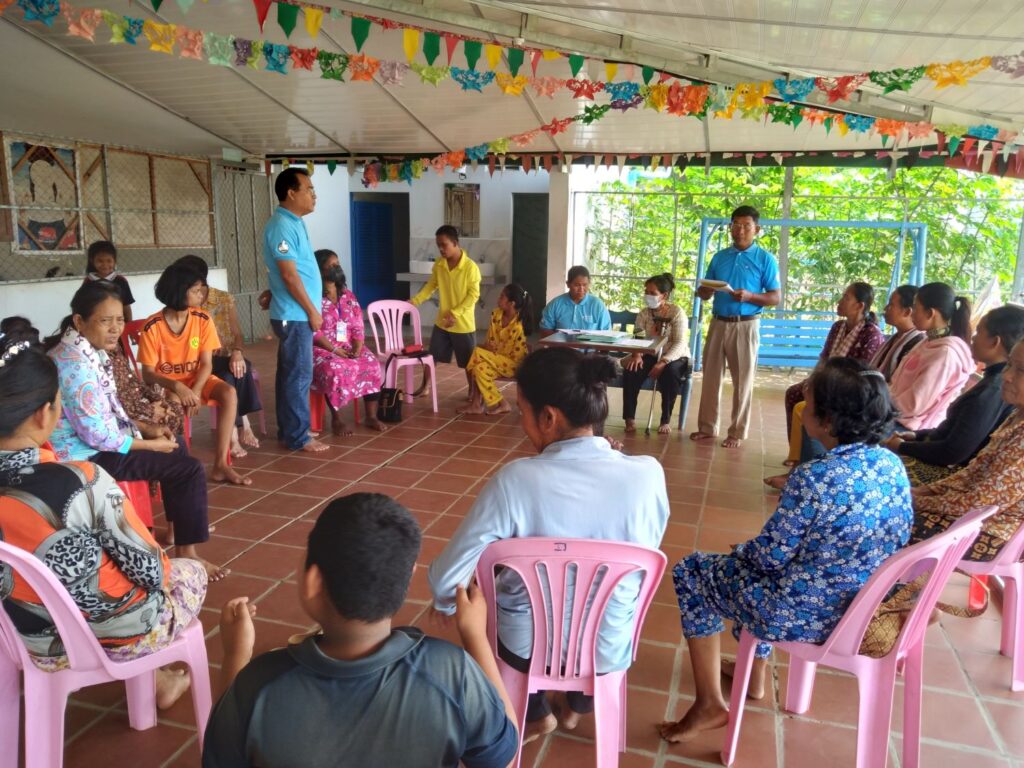
An important aspect of DT’s Outreach is encouraging families to join Family Support Groups offered at DT’s Centre. These groups provide education to families about disability-specific care, a place to discuss and learn from their shared experiences, and build a network of families with children with disabilities. Family Support Groups help destigmatise disability and combat feelings of helplessness or isolation among family members caring for children with disabilities. Attending sessions at DT’s Centre gives families a firsthand look at the facilities DT offers children for daytime respite care at the Day Care Centre, which reduces the pressures of being the primary full-time caregiver of a child with a disability.
Outreach provides not only resources and education but also hope. Motivated families ensure children are not abandoned and receive proper care to maximise their potential as they progress into adulthood.
Your donation goes directly to supporting our work helping people with disabilities and vulnerable children and families in Cambodia. Thank you!
